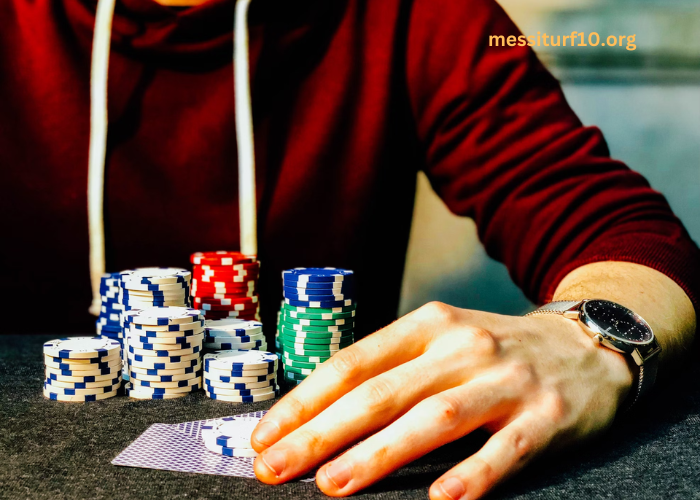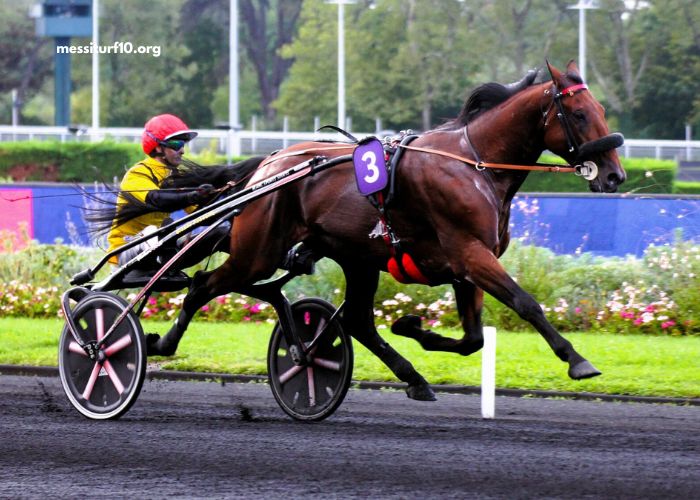Gambling is an activity that combines thrill, anticipation, and risk in a way that few other experiences do. For gamers, especially those familiar with competitive play and the excitement of achieving a new level or winning streak, the psychological appeal of gambling can be particularly strong.
While most gaming involves honing skills and strategies to outsmart opponents, gambling brings in an added factor: chance. Understanding the psychology of gambling from a gamer’s perspective reveals how this unique blend of skill and luck drives engagement and sometimes, dependency.
The Appeal of Uncertainty: Why Gamblers and Gamers Thrive on Chance
If you’ve ever found yourself sitting on the edge of your seat as you spin the virtual roulette wheel or play casino games online, you’re familiar with the thrill of uncertainty. Gamers, who are often accustomed to control, find something irresistible in the unknown element of gambling. The simple yet profound psychology of intermittent rewards, where wins are unpredictable, is a core reason why gambling can be so compelling.
Psychologists refer to this as “variable-ratio reinforcement.” In essence, when players aren’t sure when or if they’ll win, they’re more likely to keep playing. This is similar to the thrill gamers feel when they’re unsure if they’ll level up or defeat an enemy. The uncertainty keeps them hooked, driving the anticipation for the next play.
Escaping into the Game: The Role of Flow and Immersion
For many gamers, gambling offers an intense escape. This escape, often referred to as a state of “flow,” occurs when individuals are fully absorbed in an activity, losing track of time and external concerns. Gaming and gambling both have a unique ability to induce this immersive state. The sights, sounds, and even rituals involved in gambling—whether online or at a casino—create an atmosphere that’s difficult to pull away from.
Gamers are familiar with the intense focus required to succeed in high-stakes moments. Gambling offers a similar sense of immersion but with a higher-stakes edge. The thrill of a big win or near-miss keeps players focused, their brains almost hypnotically zeroed in on the game. With the constant sense of “almost winning,” even small rewards or near misses can stimulate the brain’s pleasure centers, keeping players engaged.
The Role of Dopamine: How Winning Reinforces Gambling Behavior
At the core of both gaming and gambling lies dopamine, a chemical that plays a crucial role in motivation and reward. When gamers experience success—whether a win in an online game or reaching a new personal best—they get a dopamine boost, making the activity enjoyable and worth repeating. Similarly, the thrill of winning in gambling releases dopamine, reinforcing the desire to play again.
However, the unpredictable nature of gambling can make dopamine hits even more intense. This unpredictability creates a craving that can make it challenging to step away. For gamers, who may already have a penchant for chasing rewards, gambling adds a layer of excitement that can turn the recreational play into compulsive behavior.
Social Connections and Competition: The Multiplayer Aspect of Gambling
Many gamers love the social aspect of gaming—whether competing against others or collaborating with teammates. Gambling taps into similar social needs. The rise of online casinos has made gambling a more social activity, allowing players to interact with others as they play blackjack or join poker tournaments.
Competition is another parallel. Gamers are naturally competitive, and gambling offers a way to test skill, albeit with an element of luck involved. Games like poker, for instance, combine strategic thinking with social dynamics, allowing players to read and outplay their opponents. The thrill of outsmarting others, paired with the possibility of monetary reward, can be highly motivating for gamers who thrive on competition.
Responsible Play: Understanding the Risks of Compulsive Gambling
The thrill of gambling is undoubtedly appealing, especially to gamers who are already drawn to challenging, high-stakes scenarios. However, it’s essential to recognize the risks associated with compulsive gambling. Unlike gaming, where time and effort directly correlate with skill improvement, gambling introduces uncontrollable elements of risk. This lack of control can be frustrating for gamers accustomed to refining their abilities to achieve mastery.
For gamers interested in the world of gambling, it’s crucial to approach it with mindfulness and an understanding of limits. Recognizing when play turns into a compulsive habit is vital for avoiding the pitfalls of gambling. Setting time limits and financial boundaries, as well as knowing when to walk away, can help maintain the balance between enjoying the thrill and protecting oneself from potential harm.
Rolling the Dice: The Unique Attraction of Gaming and Gambling
In the end, both gaming and gambling share a unique, magnetic appeal: they immerse players in intense, thrilling worlds that challenge both mind and luck. The psychology of gambling, from a gamer’s perspective, is deeply intertwined with a love for competition, a thrill in uncertain outcomes, and a deep appreciation for immersive experiences. So next time you sit down to play casino games online or tackle a gaming challenge, remember the thrill lies not only in winning but also in the risk, the suspense, and the journey itself.





